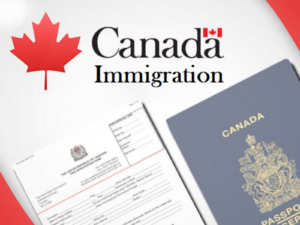Minister to Revamp Immigration System

Minister to Revamp Immigration System: Immigration Minister Marc Miller has indicated a new wave of reforms targeting Canada’s immigration and asylum systems, signaling significant shifts in policy.
These proposals, expected in the coming weeks, come amid growing concerns over inefficiencies, rising asylum claims, and issues surrounding temporary worker permits.
Here’s a deep dive into what these changes entail and their potential impact.
Table of Contents
Current Challenges in Canada’s Immigration System
1. Lengthy asylum claims’ Processing Times
The average processing time for refugee and asylum claims in Canada stands at an alarming 44 months, as per government statistics.
This backlog reflects both the increasing volume of claims and systemic inefficiencies.
“There are nearly 250,000 refugee claims awaiting decisions as of the end of September,” Minister Miller said during his testimony before the House of Commons immigration committee.
Since January 2024, only 48,000 claims have been processed—a figure that underscores the urgency for reform.
2. Inland Asylum Claims on the Rise
Inland asylum claims, which require applicants to have been in Canada for at least two weeks before filing, are another growing concern.
Between January and September 2024, only 635 such claims were processed.
According to Miller, many of these claims stem from individuals counseled to file unjust asylum applications due to diminishing options for legal residency.
3. International Students Adding to the Burden
An increasing number of international students are filing asylum claims, despite having “very little hope” of approval.
Miller emphasized that temporary residency must be taken at face value, stating, “It is not a right to become a permanent resident or a Canadian citizen. That’s something I firmly believe in.”
Marc Miller Working On New Immigration Reforms
Minister Miller outlined several reforms to address the systemic challenges:
1. Overhauling the Asylum System
Acknowledging inefficiencies, Miller reiterated his commitment to reforming the asylum system.
The aim is to streamline processes and ensure genuine refugees receive timely support, while discouraging unfounded claims.
“The system is not working the way it should,” Miller said. “This is a function of both volume and efficiency.”
2. Clamping Down on LMIA Abuses
One significant focus of the reforms is the misuse of the Labour Market Impact Assessment (LMIA) system.
Currently, obtaining an LMIA provides 50 bonus points toward permanent residency applications, creating an incentive for fraudulent activities.
“Money is changing hands where it shouldn’t,” Miller stated, referencing reports of immigrants paying exorbitant fees to employers and consultants for LMIA approvals.
Ottawa is considering reducing the 50-point bonus to curb these abuses.
3. Addressing False Hopes for Temporary Residents
Miller criticized institutions and consultants that give temporary residents false hope of permanent residency or citizenship.
His reforms aim to emphasize the temporary nature of these programs, ensuring clarity for applicants from the outset.
Public Reactions and Protests
Miller’s testimony before the immigration committee was met with vocal protests from groups like the Migrant Workers Alliance for Change.
Demonstrators held signs reading, “Don’t deport us! Don’t be racist! Rights not cuts! Status for All!”
One protester directly addressed Miller, stating, “We are the people you’re trying to kick out of this country.”
Parliamentary protective services escorted approximately 20 protesters out of the building following the minister’s exit.
Political and Social Implications
1. Criticism from Opposition Parties
NDP immigration critic Jenny Kwan accused the government of scapegoating migrants for systemic issues like Canada’s housing crisis.
Kwan questioned whether recent immigration changes were fair to temporary residents and international students.
Miller responded that while compassion is necessary, permanent residency and citizenship must retain their value.
“It doesn’t mean that you treat people unfairly,” he said. “But the reality is that not everyone can stay here.”
2. Public Sentiment on Temporary Residency
Miller emphasized that temporary residency should remain a short-term arrangement unless explicitly designed otherwise.
“Being in Canada temporarily has to actually mean something,” he said, addressing the growing number of overstayers.
The Broader Impact of LMIA Reform
The abuse of the LMIA system has drawn criticism from legitimate immigration professionals, who argue that fraudulent practices tarnish the program’s credibility.
Reducing the 50-point incentive may alleviate these concerns but could also impact the recruitment of foreign workers.
Canada’s economy relies heavily on temporary foreign workers, particularly in industries facing labor shortages.
Striking a balance between economic needs and curbing exploitation is a key challenge for policymakers.
Future Directions
Minister Miller hinted at additional reforms aimed at tackling inefficiencies in the immigration system.
He also acknowledged the complexity of the asylum process, stating that some asylum seekers are guided by false expectations.
Ottawa plans to introduce measures to dismantle immigration scams, particularly those targeting vulnerable individuals.
Miller called for a cultural shift among employers and immigration consultants to uphold ethical practices.
With almost four years required to process asylum claims, the government aims to expedite decision-making while maintaining fairness.
This includes potentially increasing resources for immigration tribunals and improving case management systems.
A Pivotal Moment for Canadian Immigration
Minister Marc Miller’s proposals mark a critical juncture in Canada’s approach to immigration and asylum.
While the planned reforms aim to address inefficiencies and exploitation, they also highlight the delicate balance between compassion and policy enforcement.
As Canada navigates these changes, public debate will likely intensify, with stakeholders from all sides advocating for their vision of fairness and opportunity.
For now, all eyes remain on the government as it prepares to unveil its next steps.
Stay tuned for updates as the reforms take shape and their implications become clearer
Minister to Revamp Immigration System.
GFK Immigration
Gboyega Esan RCIC R708591
Phone: +1 (647) 225-0092
#Explore #StudyPermit #CanadaImmigration #PostGraduateOpportunities #GFKImmigration #StayInCanada #Diploma #Canada #Student #internationalStudent #Study #Studypermit #immigrationcanada #canadaimmigration #immigratecanada #canadianimmigration #canadainmigration #immigrationtocanada #movetocanada #liveincanada #workincanada #studyincanada
